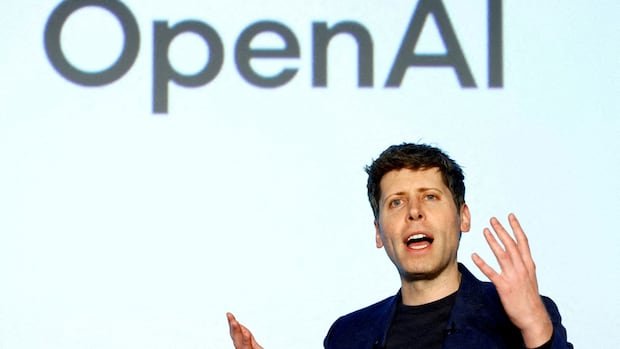The launch of the Sora social media app by the creators of ChatGPT marks a strategic move to capture the attention of users currently engrossed in short-form video platforms like TikTok, YouTube, and Meta-owned Instagram and Facebook. This new iPhone application capitalizes on the allure of creating diverse videos, spanning from animated to lifelike styles, enabling users to unleash their creativity in various scenarios.
The proliferation of AI-generated videos flooding social media platforms has raised concerns about the prevalence of inauthentic content overshadowing genuine human creativity and undermining the integrity of information shared online. With advancements in AI technology, these videos have become increasingly sophisticated, capable of deceiving viewers and sparking reactions of shock and disbelief. From harmless clips of bunnies bouncing on trampolines to misleading deepfake videos depicting fictional wildfire scenes, social media users have fallen victim to manipulated content.
The official launch video of the Sora app showcases an AI-generated portrayal of OpenAI CEO Sam Altman in surreal settings like a psychedelic forest, the moon, and a stadium filled with enthusiastic fans observing rubber duck races. Initially accessible only on Apple devices in the U.S. and Canada, the app promises a personalized experience, recommending videos based on users’ preferences and interactions.
In response to the trend, Meta recently introduced its own collection of AI-generated short-form videos through the Meta AI app. This innovative feature, named Vibes, showcases a variety of AI-generated content, including animated versions of Meta CEO Mark Zuckerberg and adorable, animated creatures engaging in playful activities.
Experts like Jose Marichal, a political science professor at California Lutheran University, caution against the dominance of AI-generated content on social media feeds, emphasizing the importance of a reliable and trustworthy information environment for making informed decisions in a democratic society. Marichal highlights the risk of misinformation spreading unchecked and the potential consequences on societal perceptions and behaviors.
To address concerns surrounding user well-being and content authenticity, OpenAI has incorporated features in the Sora app that allow users to customize their feed preferences and prioritize posts from known contacts. Additionally, the app permits users to incorporate copyrighted materials into their videos, with copyright owners having the option to exclude their content from the platform.
OpenAI has engaged in discussions with various copyright holders, including major studios like Disney, to establish guidelines for using copyrighted material within the app. The company advocates for the fair use of copyrighted content in AI applications, citing its significance for American competitiveness and national security in the global AI landscape.
As part of its commitment to user privacy and content integrity, OpenAI has implemented safeguards to prevent unauthorized use of public figures’ likenesses and ensure consent is obtained before incorporating their images in AI-generated videos. These measures include identity verification checks and user consent protocols to protect individuals’ rights and privacy within the app ecosystem.


